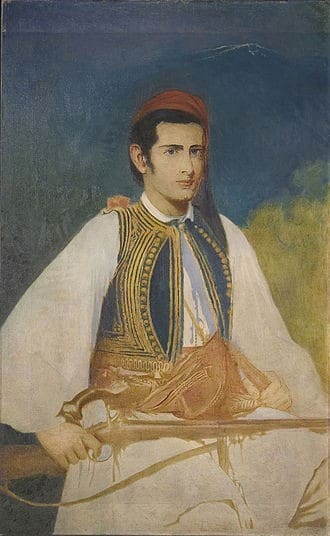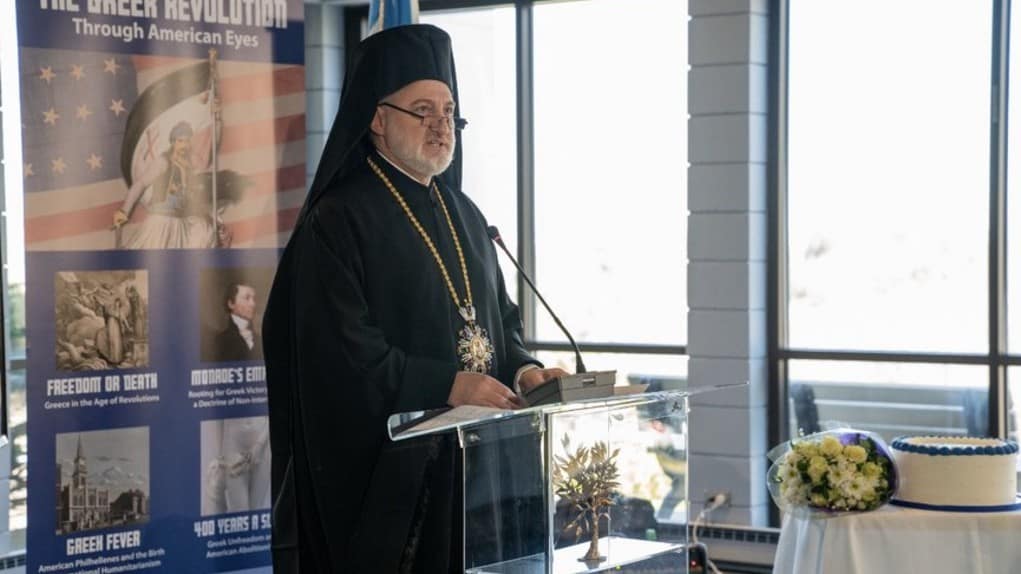Boston proudly celebrates the Greek Independence week with exhibitions and special tributes to the Greek diaspora and philhellenes

Many countries around the world celebrated Greece’s national bicentennial anniversary in their own special way, by displaying the Greek flag across their landmark buildings, by illuminating their capitals blue or by organising traditional live events and parades.
One of the cities that stood out for its celebrations for the 1821 Greek Revolution was the capital of Massachusetts, Boston.
Boston, a city with very strong “historical bridges” with Greece, organised a series of tributes, arranged by the Greek-American community, American philhellenes, the US Ministries of Foreign Affairs and Culture, as well as the Greek consulate of the state.
“Boston is very close to the hearts of the Greeks, not only because of the very strong presence of the Greek element here, but also for the fact that it is the place where love and knowledge of ancient Greece begun in America. And it has since been cultivated through its renowned universities, such as Harvard,” the Greek Consulate stated.
“So, it is logical for the celebrations to have a special symbolic weight here, as we also wanted to spread the celebratory spirit to various other places, even outside of the state.”
Together with the USA Ministry of Foreign Affairs, the Greek Consulate in Boston and its ambassador, Stratos Efthymiou, coordinated early last week the blue and white lighting of ten bridges all over the area of New England. At the same time, ten town halls were illuminated blue, including those of Lowell, Manchester and Providence. Additionally, the Boston Museum of Fine Arts, one of the most visited museums in the country, was also lit up in Greece’s national colours.

On the night of March 25, hundreds of proud Greek expatriates and students filled the city of Boston to take pictures outside the museum, on the bridges and next to public buildings, all of which were lit up blue.
The Greek pride swelled even further when the Greek community of Boston honoured, through the laying of a wreath, the great American philhellenes Samuel Gridley Howe and Edward Everett, both of which played a critical role in disseminating the Greek literature and arts in America. The ceremony was organised by the Greek consulate in the Mount Auburn cemetery, and the wreath was presented by the former governor of Massachusetts, Greek-American Michael Dukakis, the metropolitan of Boston, Methodius, and a group of other philhellenes and avid supporters of the Greek culture, who paid their own tributes.

Talking about Howe, the Greek consulate in Boston said that “his contribution to the Greek Revolution was of great significance, but also his efforts to provide aid to Greece even after the end of the war.”
Influenced by Lord Byron, Howe, after graduating from Harvard University’s School of Medicine, traveled to Greece in 1824 to fight on the side of the rebellious Greeks. He served as a surgeon and organised the country's first military hospital, as well as refugee camps in the island of Aegina and near the Isthmus of Corinth. When he returned to Boston, he set up philhellene committees and raised funds, sending eight ships of humanitarian aid back to Greece.

The city of Boston is also hosting a series of exhibitions related to Greece, as part of the Archdiocese of America's celebration program for the 200th anniversary of the 1821 Revolution.
On March 31st, a new exhibition, with art collections both presented in person and digitally, named “The Greek Revolution through the eyes of the Americans”, was inaugurated at the Maliotio Cultural Center of the Hellenic College and the Theological School of the Holy Cross, in Boston, by the Archbishop of America, Elpidoforos.
The inauguration began with the orchestral performance of the National Anthems of Greece and America, and the kontakion song “Ti Ypermacho Stratigo ta Nikitiria”, by the Romanos Melodos choir of the Hellenic College, which also performed Greek patriotic songs from the 1800s.
The exhibition explores the common values, which Greece and the USA fought for, and their co-operation in the pursuit of global freedom. All of the works and art pieces of the exhibition will tour the US and will be presented at universities and communities in various cities across the country, as well as the Aristotle University of Thessaloniki and numerous other museums in Greece.
The Greek festivities in Boston and in the rest of the USA are expected to continue taking place throughout the year, with more exciting events planned for the Summer of 2021, when restrictions and COVID-19 measures have loosened up.





Esteemed Evzones Photographer Nick Bourdaniotis. The Legend Behind the Lens.

